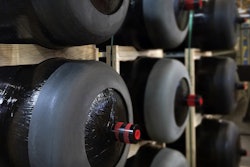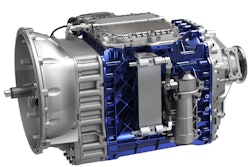According to a new report by the U.S. Environmental Protection Agency (EPA), clean diesel grants have greatly improved public health by cutting harmful pollution that causes premature deaths, asthma attacks, and missed school and workdays. The agency estimates that clean diesel funding generates up to $13 of public health benefits for every $1 spent on diesel projects. This third report to Congress presents the final results from the American Recovery and Reinvestment Act of 2009, and covers fiscal years 2009-2011.
Since its start in 2008, the Diesel Emission Reduction Act (DERA) program has significantly improved air quality for communities across the country by retrofitting and replacing older diesel engines. Diesel exhaust significantly contributes to the formation of dangerous soot and smog and is likely to increase the risk of cancer. The funding from the program has helped reduce approximately 335,200 tons of nitrogen oxides (NOx) and 14,700 tons of particulate matter (PM), which are linked to a range of respiratory ailments and premature death. The program has also saved 450 million gallons of fuel and prevented 4.8 million tons of carbon dioxide (CO2) emissions – equivalent to the annual CO2 emissions from more than 900,000 cars.
“This report shows that our diesel program is providing immediate health benefits while cutting the pollution that contributes to climate change,” says Deborah Jordan, EPA’s Air Division Director for the Pacific Southwest. “We are reducing exposure to diesel pollution by funding cleaner trucks, trains and heavy equipment, which helps communities that are disproportionately impacted, such as those near ports, rail yards and heavily traveled roads.”
Operating throughout our transportation infrastructure today, over 10 million diesel engines -- the nation’s “legacy fleet” -- need to be replaced or repowered to reduce air pollutants. While some of these will be retired over time, many will remain in use, polluting America’s air for the next 20 years. DERA grants and rebates are replacing these legacy engines with cleaner alternatives. Priority is given to fleets in regions with disproportionate amounts of diesel pollution, such as those near ports and rail yards.
One Region 9 award recipient was the California Air Resources Board (CARB). EPA awarded CARB a two-year DERA State Clean Diesel Program grant to install diesel particulate filters (DPF) on 60 school buses operating throughout California. This project was implemented using $660,050 in DERA grant funding combined with $473,950 in CARB matching funds and $44,600 in leveraged funding from the San Joaquin Valley Air Pollution Control District (SJVAPCD), other state funds, and participating school bus owners. The project was administered through a partnership between CARB, SJVAPCD, and participating fleets.
“The California Air Resources Board values its partnership with EPA under the West Coast Collaborative to implement DERA grants that reduce school bus emissions throughout our state and lower school children’s direct exposure to both cancer-causing and smog-forming pollution,” says CARB Chair Mary D. Nichols. “DERA grant funds provide much needed support for CARB’s Lower-Emission School Bus Program, which is administered in partnership with SJVAPCD. It is safe to say that without DERA, many children in California would be breathing dirtier air during their ride to and from school.”
The report also estimates the impacts from funding in fiscal years 2011-2013. Additional highlights include:
Environmental Benefits
- 18,900 tons of hydrocarbon prevented
- 4,836,100 tons of CO2 prevented
- 450 million gallons of fuel saved
Public Health Benefits
- Up to $12.6 billion in monetized health benefits
- Up to 1,700 fewer premature deaths
- Although not quantified in the report, NOx and PM reductions also prevent asthma attacks, sick days, and emergency room visits.
Program Accomplishments
- 642 grants funded
- $570 million funds awarded
- 73,000 vehicles or engines retrofitted or replaced
- 81% of projects targeted to areas with air quality challenges
- 3:1 leveraging of funds from non-federal sources

















